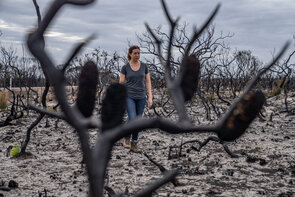
Profile
The positions in the table below reflect the Deakin University's position overall, domestically, within their sector, and in various subject areas based on their Share. Each position links to the corresponding table where Deakin University is listed.
Position by research output Share
Position by research output Share in subject areas
Research
Overall research output
| Count | Share | |
|---|---|---|
| Overall | 69 | 9.87 |
Overall Count and Share for 'Deakin University' based on the 12-month time frame mentioned above.
Research outputs by subject area
Note: Articles may be assigned to more than one subject area. Hover over the donut graph to view the Share for each subject.
Share output for the past 5 years
Compare with other institutions
Nature Strategy Reports
Identify research insights to guide research strategy and grow your impact with our Nature Strategy reports.
-
Actionable insights into research performance.
-
Detailed analysis of strengths and weaknesses.
-
Covers all major disciplines and regions of the world.
Nature Navigator
Data-driven insights for informed research strategy decisions with AI summarisation technology.
-
Track trends, summarise articles effortlessly.
-
Spark serendipitous discoveries.
-
Uncover collaboration opportunities.
Collaboration
International vs domestic collaboration by Share
| Type | Percentage |
|---|---|
| International (1271 institutions) | 61.8% |
| Domestic (97 institutions) | 38.2% |
Note: Hover over the graph to view the percentage of collaboration.
Top 5 domestic collaborators with Deakin University by Share
Collaborating institutions
Share
Top 5 international collaborators with Deakin University by Share
Collaborating institutions
Share
Latest supplement
Affiliated joint institutions and consortia
- ARC Centre of Excellence for Creative Industries and Innovation (CCI)
- ARC Centre of Excellence for Design in Light Metals
- ARC Centre of Excellence for Electromaterials Science (ACES)
- ARC Centre of Excellence for Enabling Eco-Efficient Beneficiation of Minerals
- ARC Centre of Excellence for Functional Nanomaterials
- Australian Future Fibres Research and Innovation Centre (AFFRIC)
- Centre of Research Excellence in Translating Early Prevention of Obesity in Childhood (EPOCH-Translate CRE)
- Geelong Centre for Emerging Infectious Diseases (GCEID)
- National Computational Infrastructure (NCI)
- TERI-Deakin Nano Biotechnology Centre (TD-NBC)
- The Alfred Medical Research and Education Precinct (AMREP)


